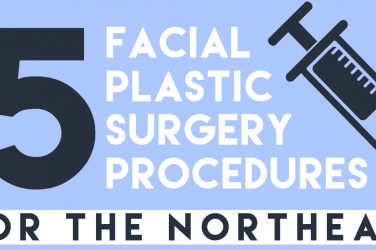We millennials are infamous for our high rates of depression. In fact, rates of mental health problems are rising. Plenty of people wonder why. But at the end of the day, mental health disorders are very personal, and each of us deals with them in different ways.
However, one thing that may help everyone suffering from depression is to understand their condition more fully. And science has a lot to say about that.
Why Depression Is Misunderstood
Unfortunately, depression — along with anxiety disorders, eating disorders, and other mental health problems — isn’t well understood by the average person. They are often told to “just snap out of it.” After all, people have total control over their emotions, right? At least to a degree, people choose to be depressed … right?
Scientifically speaking, this is far from the truth. As we will soon see, your brain is a complex machine composed of numerous components that don’t always work in perfect harmony. While environment does factor into mental health, there are underlying biological processes at work that you have little control over.
How Depression Works
Growing up, you may have heard that illnesses like depression are the result of an imbalance of chemicals in the brain. However, this explanation is rather simplistic. For a better grasp on how depression works, let’s dive a bit deeper into the topic.
How It Reacts to Antidepressants
Your brain contains billions of brain cells called neurons that communicate with each other through chemical messengers called neurotransmitters. And one neurotransmitter known to play a large role in depression is serotonin.
A popular class of antidepressant medication nowadays is the selective serotonin reuptake inhibitors (SSRIs). You may have heard of some forms of it, such as fluoxetine (PROZAC®) and sertraline (ZOLOFT®).
Each of these particular antidepressants is designed to increase the brain’s levels of serotonin. This is because a low level of serotonin in the brain is thought to be associated with symptoms of depression.
These drugs can be effective at managing depression, but one thing that puzzles scientists is why they take so long to work. Patients often don’t experience symptom relief until weeks or even more than a month of daily treatment.
This delay is obviously frustrating. Not only must patients wait for results, they have to take a regular pill, and costs can add up. Patients who struggle to make ends meet may want to visit an international or Canadian pharmacy service website. If you’re a patient, these services can connect you to licensed pharmacies outside the United States that produce significantly more affordable drugs.
The Role Neuroplasticity Plays in Depression and Antidepressants
Recently, scientists have shifted their focus from neurotransmitters to the phenomenon of neuroplasticity. This phenomenon is your brain’s ability to change and adapt in response to external stimuli, and it is essential to learning and memory.
Basically, your brain continuously changes itself in response to events and environments you encounter.
Neurotransmitters control neuroplasticity. Therefore, antidepressants that target neurotransmitters may affect neuroplasticity too.
Research suggests that chronic stress affects the mechanisms responsible for neuroplasticity. For example, stress keeps new neurons from forming in the hippocampus of adult brains.
Antidepressants like SSRIs, then, improve neuroplasticity by reversing these bad effects caused by stress. However, this process takes time.
Depression and Negative Affective Bias
People who have just experienced stressful life events and situations are believed to be at higher risk of developing depression. At the molecular level, stress can even change how genes are expressed, which is a phenomenon called epigenetics.
How the individual interprets stressful situations is important. People with depression tend to perceive social cues more negatively. For example, they may think a person looks angrier than they actually are. This phenomenon is called negative affective bias.
Experiments have shown that antidepressant drugs may reverse negative affective bias.
Scientists have found that in people with depression, certain parts of their brain respond more strongly to negative stimuli. Over-activity in these areas of the brain is often combined with under-activity in other parts of the brain.
Antidepressants have been shown to reverse these actions in both depressed and healthy people. After taking antidepressants for six weeks, patients with depression experienced reduced brain activity in certain regions when shown negative facial expressions.
Interestingly, negative affective bias can decrease after just a single dose of reboxetine (an antidepressant not belonging to the SSRI class). Brain changes can be detected quite early. But patients may just not consciously notice it. Patients may also not notice the effects of these brain changes until they’ve had the chance to interact more with their environment.
So in a way, antidepressants help patients re-learn their biases.
Note: These summaries about neurogenesis and negative affective bias just barely scrape the surface of current research. Interested readers should consult the original scientific review that investigates these processes.
The Effects of Talk Therapy
If depression is so biological, how do talking therapies treat depression?
One form of talking therapy, cognitive behavioral therapy (CBT), is believed to be just as effective as antidepressants. CBT is based on the hypothesis that negative thoughts, feelings, and behaviors happen when situations are negatively misinterpreted.
In a 2009 scientific review, CBT was shown to have influenced structural brain changes in a range of disorders, including social phobia, PTSD, OCD, and panic disorder. Patients were scanned with fMRIs or PETs. Brain activity in some areas increased while activity in other areas decreased, depending on the unique disorder.
The Takeaway
So how does all this science help?
Well, by understanding how treatments change our brains, whether the treatment is pharmaceutical drugs or talking therapy, we can acknowledge two things:
- Mental disorders may have a significant biological component. Therefore, we cannot simply say that a patient is depressed because they choose to be, are weak-willed, or can just “snap out of it.”
- Despite this biological component, we still have the power to re-wire our brains and treat our disorders. Both pharmaceuticals and talking therapies can change our brain for the better.
So, whether you choose to use pharmaceutical drugs, talking therapy, or both, they can stimulate similar beneficial changes in the brain.







